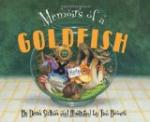No corporation would shorten the working day except by reason of self-interest or legal compulsion. No business man would attack an abuse that would take money out of his own pocket. And no one of us, except out of revenge or pique, would publicly criticize or condemn a man influential enough to do us harm. The political Saint George usually hopes to jump from the back of the dead dragon of municipal corruption into the governor’s chair.
We have two standards of conduct—the ostensible and the actual. The first is a convention—largely literary. It is essentially merely a matter of manners—to lubricate the wheels of life. The genuine sphere of its influence extends only to those with whom we have actual contact; so that a breach of it would be embarrassing to us. Within this qualified circle we do business as “Christians & Company, Limited.” Outside this circle we make a bluff at idealistic standards, but are guided only by the dictates of self-interest, judged almost entirely by pecuniary tests.
I admit, however, that, though I usually act from selfish motives, I would prefer to act generously if I could do so without financial loss. That is about the extent of my altruism, though I concede an omnipresent consciousness of what is abstractly right and what is wrong. Occasionally, but very rarely, I even blindly follow this instinct irrespective of consequences.
There have been times when I have been genuinely self-sacrificing. Indeed I should unhesitatingly die for my son, my daughters—and probably for my wife. I have frequently suffered financial loss rather than commit perjury or violate my sense of what is right. I have called this sense an instinct, but I do not pretend to know what it is. Neither can I explain its origin. If it is anything it is probably utilitarian; but it does not go very far. I have manners rather than morals.
Fundamentally I am honest, because to be honest is one of the rules of the game I play. If I were caught cheating I should not be allowed to participate. Honesty from this point of view is so obviously the best policy that I have never yet met a big man in business who was crooked. Mind you, they were most of them pirates—frankly flying the black flag and each trying to scuttle the other’s ships; but their word was as good as their bond and they played the game squarely, according to the rules. Men of my class would no more stoop to petty dishonesties than they would wear soiled linen. The word lie is not in their mutual language. They may lie to the outside public—I do not deny that they do—but they do not lie to each other.
There has got to be some basis on which they can do business with one another—some stability. The spoils must be divided evenly. Good morals, like good manners, are a necessity in our social relations. They are the uncodified rules of conduct among gentlemen. Being uncodified, they are exceedingly vague; and the court of Public Opinion that administers them is apt to be not altogether impartial. It is a “respecter of persons.”




